1 of 11
Advertisement


Advertisement
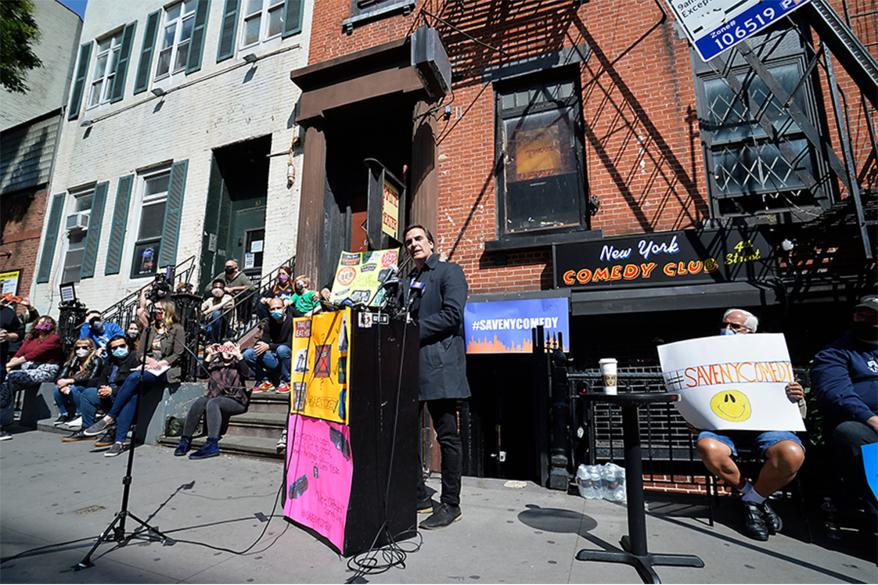
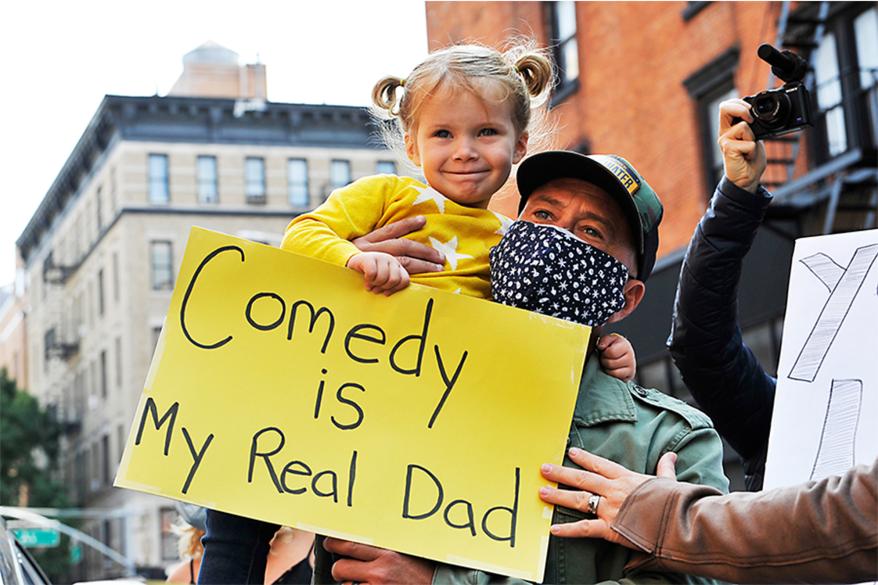

Advertisement
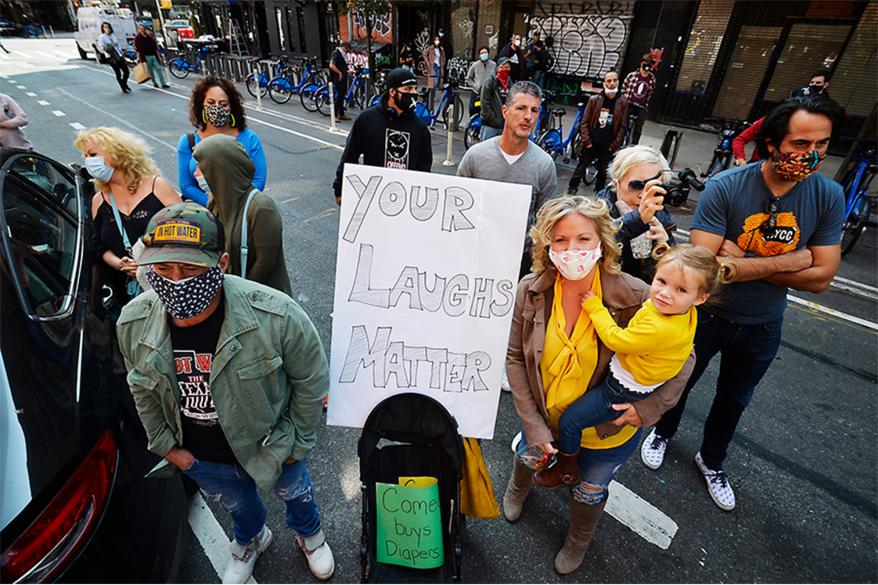
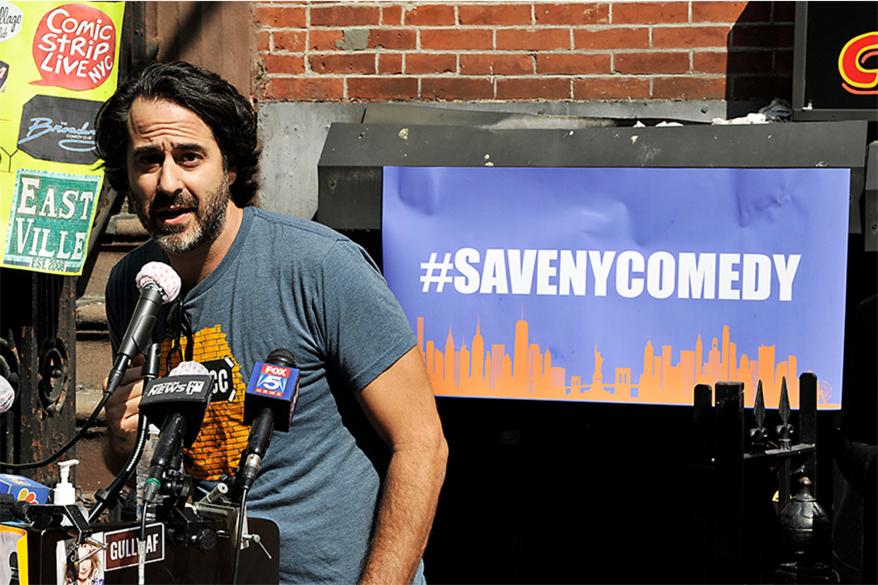
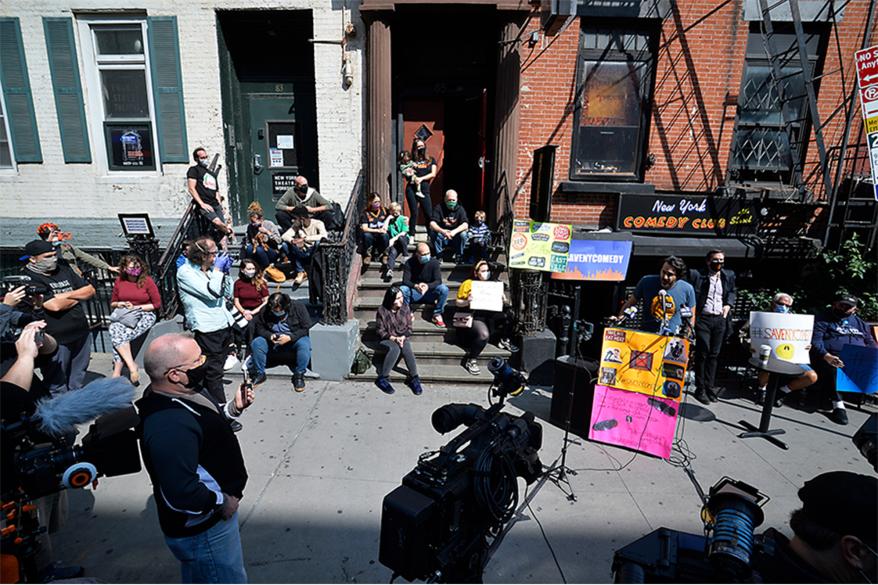
Advertisement
Advertisement








It’s time to laugh again.
Comedy clubs ordered closed in March during the peak of the coronavirus outbreak haven’t been allowed to reopen — while restaurants and bowling alleys got the OK to to resume operations, albeit with rules limiting capacity to prevent the spread of the killer bug.
But proposals introduced by Sen. Michael Gianaris (D-Queens) and backed by the jokers and club operators would allow the venues to re-open and operate under the same indoor restrictions as either bowling alleys or restaurants.
Channeling Rodney Dangerfield, comedians and club owners say they’re getting “no respect” from Gov. Andrew Cuomo and state health officials even though the COVID-19 pandemic has abated in New York.
“New York without culture is a very expensive Cincinnati. I would like to go back to being New York,” quipped comedian Ophira Eisenberg, host of NPR’s “Ask Me Another.”
“Everybody understands that this is complicated. But NY State seems to have figured it out for every other industry,” said comedian Christian Finnegan.
“I’m not sure why comedy can’t even get a concrete plan. I can tell you this: The ban on live comedy has done nothing of the sort. Shows are happening every night–in backyards, parking lots, and private homes. The only thing this confusion does is prevent those shows from happening safely, under the oversight of licensed venues,” he said.

One measure introduced by Gianaris would treat comedy venues like indoor restaurants that can operate at 25 percent capacity in New York City.
Another recommendation he’s pushing would allow venues to be treated like bowling alleys and operate at 50 percent occupancy without food & beverage service.
Other venues with outdoor performance spaces — which a number of clubs have — should be allowed to open immediately, Gianaris said.
“I challenge anyone to explain why comedy clubs would be less safe to operate than restaurants or bowling alleys. There is no good reason to keep them closed when these other establishments are open — all that does is further hurt our economic recovery,” Gianaris said.
“This is no laughing matter.”
Gianaris promoted the measures with 150 comedians, club owners and various supporters during a noon press conference Tuesday outside the New York Comedy Club in the East Village.
Kambri Crews, founder of the Q.E.D. comedy club in Long Island City, said, “The governor cites science and data as his guides. I love science. I love math. I named my venue Q.E.D [Latin abbreviation for quod erat demonstrandum, or proving an argument].
“But where is the data to support that escape routes are safer than an outdoor comedy show? Where is the data to support a crackdown in arts and entertainment outdoors at licensed venues, while allowing non-ticketed, unregulated public gatherings and indoor private events? The 2,400 independent arts venues — we would like to know the answer to that,” Crews said.
“The 20,000 employees that are employed by these venues, they would like to know the answer to that. The thousands upon thousands of independent contractors and gig workers, actors and performers that the venues employ, they would like to know the answer to that….. We are drowning here. Throw us a lifeline instead of pushing us deeper into debt and despair.”
For his part, Mayor Bill de Blasio on Tuesday was in no rush to reopen comedy clubs.
“We’ll look at that one. Honestly, it hasn’t been one of the areas we focused on a lot, but it’s an important part of life in the city. It’s something we’re proud of,” the mayor said during his COVID-19 press briefing.
“Outdoors works so long as it’s the right size group and there’s distancing. Obviously, we always prefer outdoors. But, in terms of indoors, it’s something we’ll talk about” with state officials, he said.
A top aide to Cuomo said there are ongoing talks about the possibility of reopening comedy clubs and under what conditions.
“If there is any time when a laugh is needed, it’s now. We’ve been talking to the industry and other stakeholders and it’s our hope we’ll be able to put together guidance where these performances can resume in a way that also keeps New Yorkers safe,” said Cuomo senior advisor Richard Azzopardi.”
Cuomo said last week that re-opening comedy clubs and arenas was still risky.
“When you look back at what we did, the most essential businesses with the lowest risk we did first,” he said of New York’s reopening plan.
“My good friend Billy Joel, he was doing Madison Square Garden — when will we get back to Madison Square Garden. Those large arenas pose the greatest risk. Even if you say every two seats, every three seats, yeah, but you’re still channeling people in and out of a corridor.”

Cuomo then added: “How essential is a comedy club when you’re talking about a possible infection rate? Not to offend people in a comedy club and Lord knows we need to laugh — but those are the calibrations we’re making.”
Other industries like movie theaters — which have reopened already in New Jersey — and live acting on Broadway also have yet to gain the green light for reopening.
With the backing of actor-funnyman Jerry Seinfeld, Sen. Charles Schumer last week proposed the “Save our Stage Act” federal legislation, which would provide $10 billion to keep afloat comedic venues that have seen their profits undergo significant shrinkage because of pandemic closures.